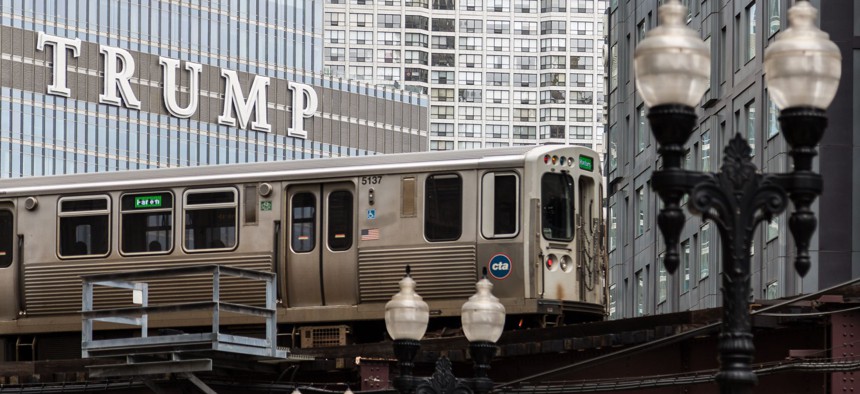Appropriators Aren’t Rushing to Embrace Trump’s Cuts to New Starts and TIGER

Shutterstock

Connecting state and local government leaders
Transportation Secretary Elaine Chao says her department “will respond to the will of Congress.”
WASHINGTON — U.S. House lawmakers on Thursday raised concerns to Transportation Secretary Elaine Chao about the Trump administration’s proposals to slash funding for federal grants that help state and local governments pay for infrastructure projects.
Chao defended the cuts and touted White House plans for a new infrastructure investment initiative—which is still a work in progress. The discussions took place as she testified before a House Appropriations subcommittee about the president’s spending plan for fiscal year 2018.
Both Republicans and Democrats expressed reservations about Trump’s proposed cuts to the Federal Transit Administration's New Starts program, which falls under what are known as Capital Investment Grants.
New Starts provides funding for local transit projects and would be cut under Trump’s plan from upwards of $2 billion in fiscal 2017 to $1.2 billion in 2018. Awards through the program would also be restricted to projects with so-called “full funding grant agreements” in place.
Future transit investments, the president’s budget proposal says, could be funded by localities.
Some of the projects with full funding grant agreements include a subway on the west side of Los Angeles, a commuter rail line in Denver and a rail extension of Boston’s Green Line.
“I'm concerned about the fiscal year budget provision limiting funding for Capital Investment Grants, what we commonly refer to on the committee as New Starts,” said U.S. Rep. Rodney Frelinghuysen, a New Jersey Republican who chairs the full House Appropriations Committee. Frelinghuysen stressed in his remarks the importance of building a new railway tunnel under the Hudson River to connect his home state and New York City.
U.S. Rep. David Price, of North Carolina, the top Democrat on the Appropriations subcommittee that oversees transportation, was more emphatic in his comments.
“Ending the CIG program would completely upend dozens of badly needed transit projects across the country,” he said.
“In most cases existing funding commitments from state and local governments would no longer be enough to move forward with construction,” Price added, “dooming many projects to failure.”
Comments like these did little to sway Chao from sticking by the White House position.
“The administration does not support New Starts,” she said at one point.
A California Democrat, meanwhile, grilled Chao on the Trump administration’s rationale for zeroing out funding for a competitive Department of Transportation grant program, launched during the early years of the Obama administration, known as Transportation Investment Generating Economic Recovery, or TIGER, grants.
The program’s funding level in fiscal 2017 is about $500 million. TIGER grants have funded road and transit projects in both urban and rural areas across the U.S. dating back to 2009.
U.S. Rep. Pete Aguilar, who represents a district east of Los Angeles in the San Bernardino area, asked Chao about how the White House arrived at the decision to to chop the grants.
“There was a basic philosophical disagreement on whether segregated monies like that should be specifically used in a earmark-like way,” she replied.
“But having said that, it is the will of the Congress,” Chao continued. “So you certainly have every flexibility and way to restore what you think you would like."
Aguilar took issue with Chao’s characterization of TIGER grants being akin to earmarks.
"We're willing to work with you,” Chao said, as she discussed the grants. “This is a very popular program. Members of Congress like it. And so we will respond to the will of Congress.”
Bill Lucia is a Senior Reporter for Government Executive’s Route Fifty and is based in Washington, D.C.

NEXT STORY: Virginia Cyber Range serves up statewide hands-on education





